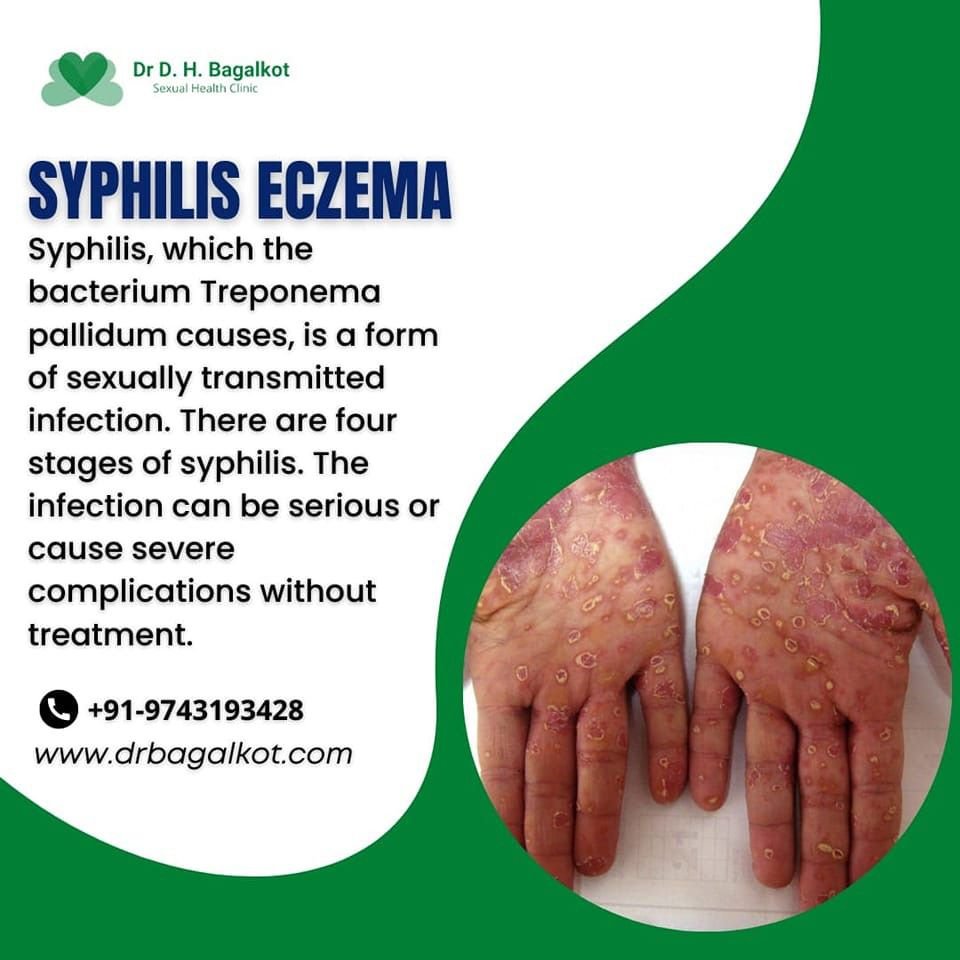Syphilis Eczema

Eczema, also known as dermatitis, is a skin condition characterized by redness, itching, inflammation, and sometimes the formation of blisters or scales. It is not related to syphilis or any other sexually transmitted infection. Eczema can have various causes, including genetics, allergies, irritants, and immune system dysfunction.
Syphilis is treated with antibiotics, typically penicillin. Early detection and treatment are crucial to prevent the progression of the disease and its complications. It’s important to consult a healthcare provider for diagnosis and appropriate treatment if you suspect you have syphilis Syphilis is a sexually transmitted infection (STI) caused by the bacterium Treponema pallidum. It progresses in stages and can have various symptoms depending on the stage. Common symptoms include .
Syphilis: Causes and Symptoms:
- Itchy Skin: Eczema is often intensely itchy, and scratching can worsen the condition.
- Redness and Inflammation: The affected skin may appear red and inflamed.
- Rash: Eczema typically results in a rash with dry, scaly, or weepy patches.
Syphilis is a sexually transmitted infection (STI) caused by the bacterium Treponema pallidum. It progresses through various stages and can have a wide range of symptoms, including skin manifestations. The primary and secondary stages of syphilis often present with skin-related symptoms, such as.

Syphilis and Eczema: Understanding the Connection
Syphilis and eczema are two distinct medical conditions that can affect the skin. While they have different causes and characteristics, they can sometimes be linked or co-occur in certain situations. In this article, we will explore the connection between syphilis and eczema, their individual characteristics, and the implications for diagnosis and treatment.
Primary Stage: A painless sore or ulcer known as a chancre typically appears at the site of infection (usually the genitals, rectum, or mouth). This sore can be mistaken for other skin conditions.
Secondary Stage: In this stage, a rash may develop on various parts of the body, including the palms of the hands and the soles of the feet. This rash is often non-itchy and may resemble eczema, psoriasis, or other skin conditions.
Eczema (Dermatitis): Causes and Symptoms:
Eczema, also known as dermatitis, is a non-contagious skin condition characterized by inflammation, itching, and a rash. Eczema can be triggered by a variety of factors, including genetic predisposition, environmental allergens, irritants, and stress. Common symptoms of eczema include:
Syphilis: Testing for syphilis typically includes blood tests to detect antibodies to Treponema pallidum. A thorough medical history and physical examination can also provide valuable information.
Blisters: In some cases, small blisters may develop, resembling the appearance of “eczema herpeticum,” which is an eczema complication caused by the herpes simplex virus.
